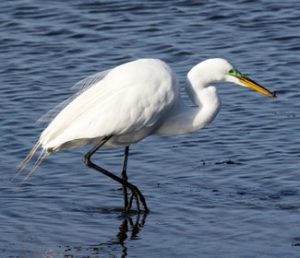The State of the Bay Report – 2016, released in June, 2016, examines 17 environmental indicators. The indicators are measurable characteristics (e.g., dissolved oxygen, water withdrawals, shellfish bed closures) that are used to observe changes in the bay over time. For a quick summary of the findings, refer to the easy-to-read status and trend dials at the beginning of the report. Explore issues in more detail by referring to the sections about each indicator. Helpful figures, maps, and other graphics illustrate the text, and stunning photographs show the beauty of our bay and its watershed. For the first time, the BBP’s State of the Bay Report is also available in a Spanish-language version.
This BBP video gives a great overview of the report and its findings.
The report’s findings include the following areas of concern for the bay.
- Water Quality: Studies indicate an increase in the amount of nitrogen entering the bay; excess nitrogen contributes to “eutrophication” — a process which can result in an increase in nuisance algal blooms, low dissolved oxygen, and other adverse effects that stress life in the bay.
- Water Supply: As the watershed’s population grows, freshwater withdrawals for human use have increased, impacting the base flow of our rivers and streams and the timing and amount of freshwater reaching the bay.
- Habitat: Critical habitats continue to be lost, including freshwater and tidal wetlands (important for flood protection, water quality, and wildlife habitat) and sea grass beds (critical nursery habitat for many fish and shellfish species).
- Fisheries: Hard clam populations continue to be severely depleted in the bay compared to the mid-1980s. On the other hand, the fish community in the bay has been relatively stable.
State of the Bay Report is based on the best available science. Continued monitoring and assessments are critical for measuring the progress of efforts to protect and restore the bay and for planning future actions. If you would like a printed copy of the report, please email kwalzer@ocean.edu


